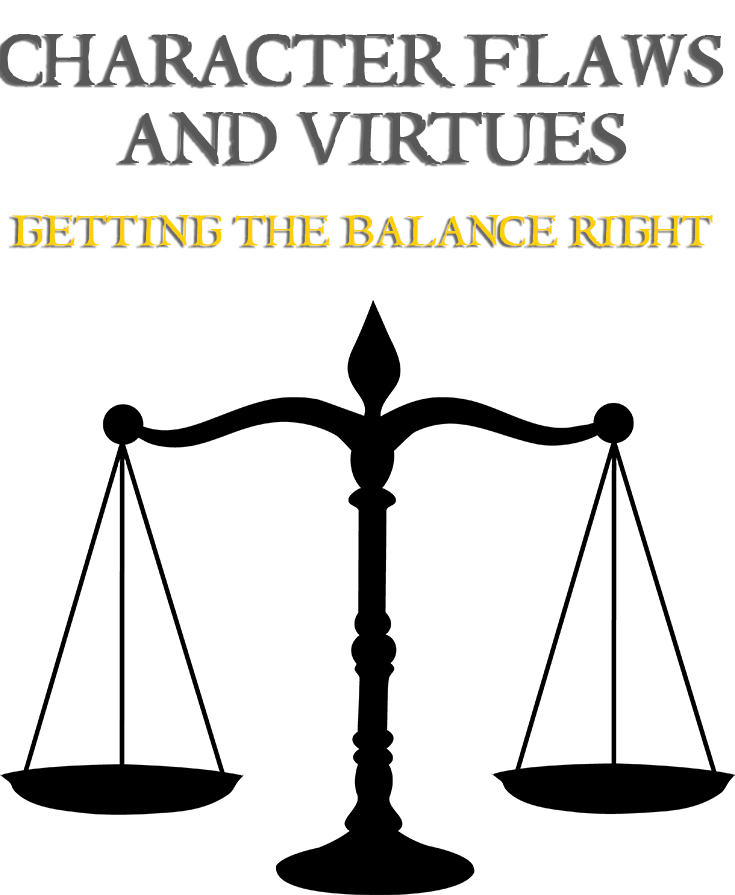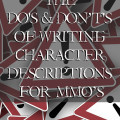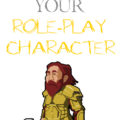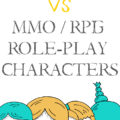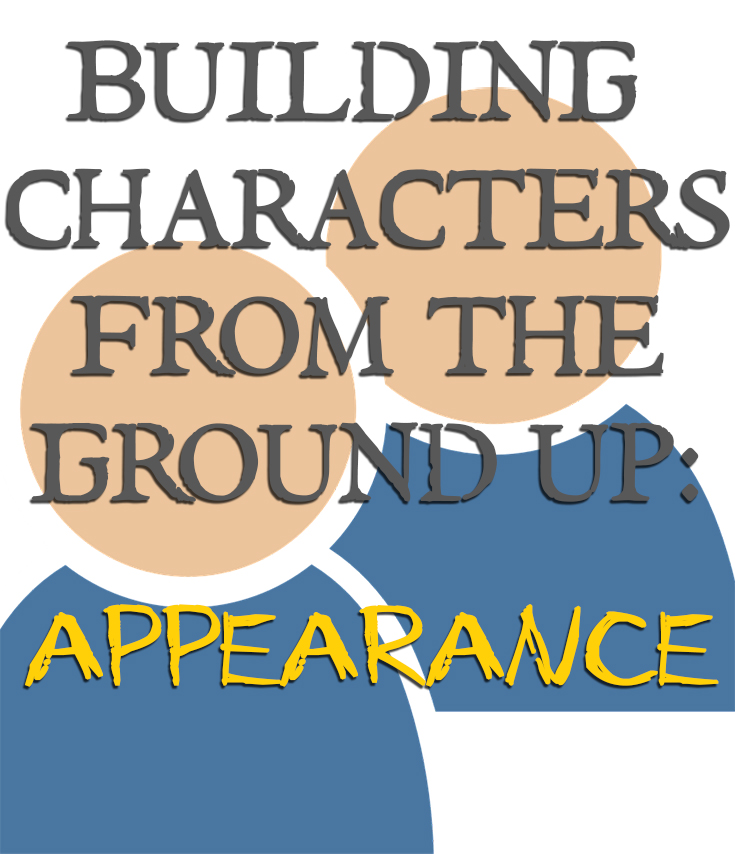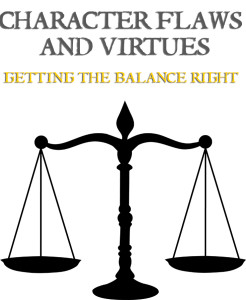
By this stage you will or should have something, some idea however vague it may be of what you want from your character, and that idea might even be a virtue or flaw in itself. This really just depends on what you want to be the focus of your character, perhaps you want a strictly duty-bound soldier sort, to his loyalty and honour will be pre-set strong virtues, perhaps you want a character struggling with some personal weakness, like an addiction, grief or a temper. It all comes down to how you balance it, how you make it function.
From The Ground Up (FTGU) is a series of posts based around character creation and roleplay, building from the ground up, obviously. In this post we’re going to talk about your characters story and their development and how to do that. But if you have missed any parts this far you can catch up with them here:
Our duty-bound soldier for example. Y’all know by now that I play Blood Elves almost exclusively, well within their society they have the Blood Knights, which you may or may not know about, it doesn’t overly matter for this example either way. The bulk of players who play these Knights play on that very same virtue, they are – and rightly so – the strict, duty-bound, loyalty and honour sorts. Which is all fine and good, but many of them don’t balance it, you will very rarely catch them not on-duty and in uniform, and while on-duty they tend to have about a spoonful of character and the humour/wit of an American TSA Officer. They stop becoming people, they are no longer –characters- but walking tin cans with a set of protocol programmed functions, which limits role-play and makes interaction difficult and unsatisfactory. Elves are understandably more up-right and straight-laced than humans for example, but I highly doubt all of them are entirely flawless, even among the Knights. So lets look at possible correction’s because we’re here to learn, people; you could balance this several ways to make it more flexible and functional.
If you want to keep the character themselves true, just and all that is good in the world balance him from the outside. Perhaps he has family; a brother that is an addict, and he’s forever torn between doing his job and duty and bending said job and duty to help out his kin. Instant interesting personal conflicts and hooks. It’s that simple. Perhaps Relative Jim is in some trouble with some Big Bads and our poor little Main Character here is trying to abuse his power and access to find these guys and help his kin or chum. Perhaps he falls for someone walking on the other side of the rails, as it were. All of these things bind him to aspects and circles outside of the ones he is in and ergo opens doors for you as the role-player to venture into more areas of role-play and create more challenges and conflicts for your character which is where greatness is born. And it gives the character the chance to be more than the Cookie Cutter Knight Type.
Or you take the internal approach. Make the issue with them, perhaps they are the addict? Perhaps they are in deep with gambling? Perhaps they are overly ambitious and willing to climb the ladder at any and all costs even to the degree to sabotaging and ratting out colleagues? Climbing to the top on a body count. Perhaps they desire coin, for any reason, as we all often do, and are susceptible to falling prey to a few easy made gold on the side? Again, instant conflicts, things to dodge, things to hide and mask, things to do outside of your structure, and it balances out his sense of duty and loyalty, after all, he’s clearly very clever and able and deserves to be at the top if he can get there by any means. These are the politics Silvermoon is built on after all. Perhaps what he believes to be a duty and service to the city is not what others might think it is? He is balanced, and he can lean heavier on one side than the other without issue because the nature of his flaws and virtues are rational, subtle and they work to keep him functional, and not only functional and flexible but usable, he has motive in there too, he has direction and things he could and should be doing. AKA any of those options creates role-play that you can generate. You can apply that to any character, not just elves, it will work for any race you can come up with and any character setting, with just a slight shift in the conditions to be suitable.
Perhaps here is a good place to note that these flaws and virtues have to make sense. You could try just lucky-dipping and grabbing some at random but I doubt it will work well for you. For example it would make no sense for our duty bound Knight to be a pathological liar, a pacifist, to harbour a crippling fear of the undead, to be missing a limb and other such things that would out-right contradict him being a Knight at all. Which brings us full circle, while you might already have a defining trait in mind, or perhaps you just have an idea for the character from the plot and have yet to add any flaws and virtues, think about who they are. Try and put yourself in their shoes, imagine their lives, how they felt and acted at different points and how that will have in turn affected them, and within that I reckon you will find all the flaws and virtues you could want, and it will give your character a vast deal of depth and soft realism and round them into feeling like more of a whole-being than a 2D creation.
Example time!
Recall that poison mixing medic we brushed on two posts ago? She is primarily a good character, she is kind, gentle, motherly, all that stuff that you might expect of a medic and a healer, but when the player took into account the amount of death and loss the character suffered and saw personally being a long-lived elf, and added that to the horrors of a battlefield as a medic entirely new to all of it? She found her flaws. Our dubious medic started mixing poisons when she was younger and her alchemist mother took ill, because they sold for better coin. She later used them to kill patients, mercy killings if you believe in such a thing, if she even believed in such a thing, but it adds an entirely dark strain to a previously seemingly clear-cut character that is still, a year down the line shocking me with how much she is not what she appears to be, it opens doors to her as a character and a player, without damaging her functionality, she still has that drive to help people where she feels she can and a craving for life to try and damp out the shadow of death.
What about that exiled Knight? He would fit into the above; he is moral, fair and good. By all accounts much of what a Knight should be, but he was wronged, or rather somewhat-wrongly accused of a crime some time ago, a crime he committed, but for good reasons, and for it he was stripped of rank and duty for doing what he believed to be the right thing. So while his removal was not his own choosing, it did affect his own morals, he became bitter and sore on the topic as wronged men do and turned to whatever he could to make ends meet and finding himself slipping farther and farther into it and away from the beacon he once was creating conflicts and development, opening doors and leaving him functional and with added opportunities. As he tries to carve a living in this world he’s fallen into without giving up the core of his morality.
So in summary, when thinking about flaws and virtues for your character you have several things to consider; avoiding being flawless or virtuously flawed, balancing flaws with virtues, keeping it realistic, relevant and subtle and using it to create additional opportunity, hooks and functionality for your character.
